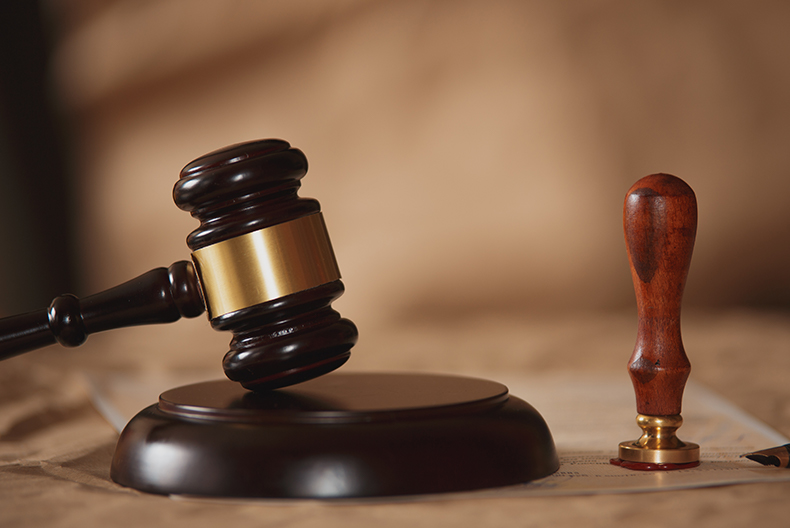Wills and probate
Wills
A Will is a witnessed document that provides for the distribution of a person’s property subsequent to their death. A will allows a testator to appoint executors in order to administer their estate in accordance with the wishes as set out in the Will by the testator. It is important to note that in circumstances where there is a surviving spouse/civil partner (who hasn’t renounced their rights) then that spouse/civil partner is entitled to a legal right share of your estate under the Succession Act 1965 (as amended by the Civil Partnership and Certain Rights and obligations of Cohabitants Act 2010) as follows:
- If there are no children, the legal right share is half of the estate
- If there are children, the legal right share is one-third of the estate. (The children are not necessarily entitled to the rest.). The surviving spouse or civil partner may require that the family home be given to them in accordance with the legal right share.
Unlike a spouse or civil partner, children have no absolute right to inherit their parent’s estate if the parent has made a will. However, if a child considers that they have not been adequately provided for, they may make an application to the court under section 117 of the Succession Act, 1965.

If you have minor children, you may want to consider the appointment of Guardians to look after the welfare of your children in the event of your death. If you do not appoint a guardian under your Will, the Court will do so on your behalf in the event of your death. In the case of marital children, both parents are deemed to be joint guardians of the child. In the case of non-marital children this is not the case. The natural mother is automatically deemed to be the guardian of the child but the natural father is not. It is important that you give due consideration to the appointment of a guardian. It is of vital importance that you choose a person who you can trust to take legal responsibility for the welfare of your children. It is advisable to discuss this with the individual(s) you wish to appoint and to get his/her consent to be named in the Will as a testamentary guardian.
You may also appoint a trustee(s) under your Will. The role of a Trustee is to look after your assets on behalf on your chosen beneficiaries in circumstances where the beneficiaries may be too young or may lack the mental capacity to manage those assets. The trustee(s) will be given the legal responsibility to manage the relevant assets for the beneficiary. This Trust will take effect on the death of a person by a legal document know as a Deed of Trust. There are numerous types of Trusts that can be put in place and your solicitor can talk you through these options when you meet with him/her to discuss your Will. Trustees should be appointed with care. It is important to note that although you may choose a certain individual to be the legal guardian of your child(ren) in the event of your death, you do not have to choose the same person to act as a Trustee if you do not believe they are best suited to manage the trust, instead you may appoint a different individual to act as a Trustee.

While we are not tax advisors, we will advise you on the most relevant reliefs of taxation and other reliefs available regarding your estate. Capital Acquisition Tax (CAT) is a tax payable by a beneficiary if their inheritance goes above a certain threshold. These thresholds are calculated on the basis of a person’s relationship to the testator. We can advise you in relation to the categories of CAT and the situations in which CAT may arise for a beneficiary under your Will.
At Rolleston McElwee Solicitors LLP we are acutely aware that making a Will can be a difficult task requiring guidance and advice from experienced professionals in this field. We will guide you through this process and alleviate any issues or concerns that you may have. For further details on what may be required in order to draft your Will please see our Will Instruction Form (link) which you can download, fill out and bring with you to your appointment with your solicitor or should you prefer, you can email this instruction form to your solicitor, prior to attending at our office.
Probate
Probate is a process that essentially falls into four main categories, these are:
- Taking instructions from the Executor(s) and collecting all of the relevant information about the Estate such as the assets, liabilities, expenses and information relating to beneficiaries.
- Preparation of the papers required to extract a grant of probate and attending on the Executor(s) to have the necessary documentation signed in the presence of a Commissioner for Oaths and subsequently sending all of these documents with the completed revenue affidavit to the Probate Office.
- The Grant will then be issued by the Probate Office and all of the assets will be collected, tax clearance will be sought and outstanding expenses will be paid.
- The Estate will then be distributed in accordance with the testators wishes if there is a valid Will in existence. If there is not, the Estate will be distributed in accordance with the law on Intestacy.
- If you wish to instruct us, we can assist with your tax return.
We, at Rolleston McElwee Solicitors LLP, recognise that probate comes at an emotional time. This is why we are committed to ensuring that you are provided with support and personal advice in relation to your probate matter. With Deborah Holland of Rolleston McElwee Solicitors LLP a member of The Society of Trust and Estate Practitioners (STEP), combined with years of experience dealing with probate cases, our solicitors have an extensive portfolio of probate cases from small to extensive and complex estates with advanced skill and knowledge in Probate Law. We aim to provide our clients with knowledge and with clear, concise advice as to the legal and administrative obligations that may arise in the course of their probate case and inheritance matter.
